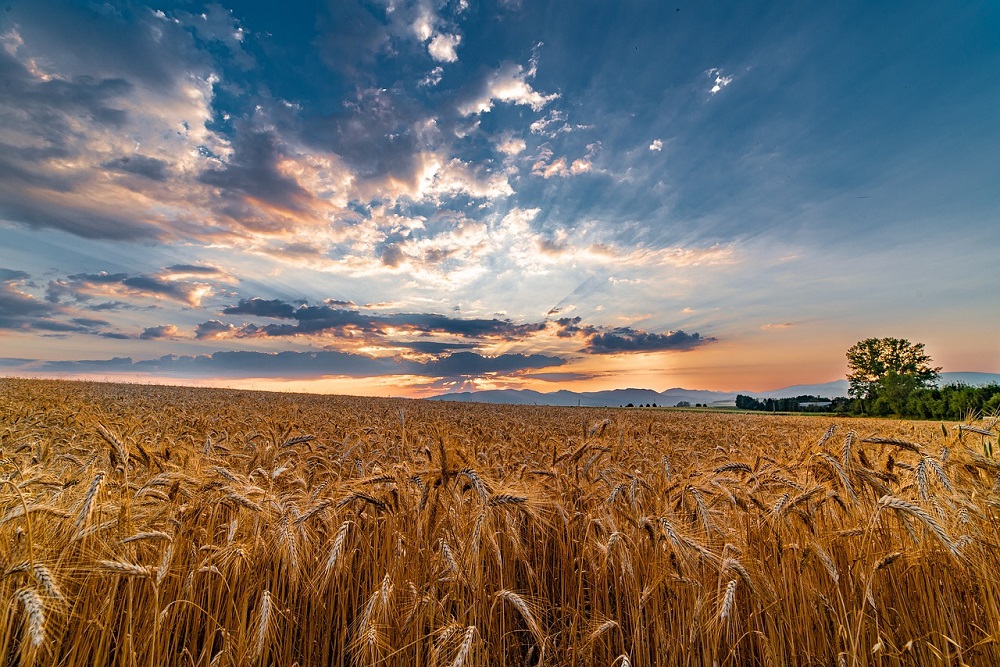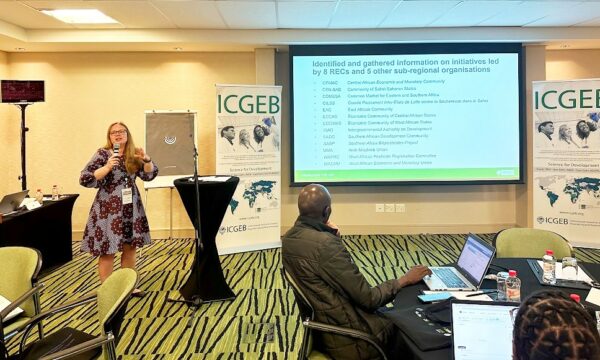
CABI has joined forces with FA Bio and Crop Health and Protection (CHAP) as part of a two-year feasibility study investigating the power of native fungi to provide protection against pests and diseases blighting British cereal crops.
The project, which is being led by FA Bio, is funded by Defra through the Farming Innovation Programme (FIP) and delivered via Innovate UK, aims to develop a biopesticide solution – reducing the reliance on less sustainable chemical pesticides.
Wheat is part of the ‘big-four’ staple crops worldwide alongside maize, rice, and potatoes but UK production is significantly hampered by insect pests and fungal diseases. This includes cereal aphids such as the cherry-oat and viral agents – notably barley yellow dwarf virus and cereal yellow virus.
Dearth of biopesticides
Dr Steve Edgington, Biopesticides Team Leader at CABI, said: “It’s a pleasure to be involved in this project, the UK has such a dearth of biopesticides for use in arable production that we urgently need this type of research.
“Particularly on the beneficial microbials, such as fungi, they can be so useful to protect plants from pests and diseases but can do it in harmony with the local biodiversity, plus they can give the soils a bit of a breather, a chance to regain some health.
“Let’s see where we go with it, but yes absolutely crucial we keep this research and development up.”
Selected fungal isolates
Through glasshouse trials, the performance of selected fungal isolates against two cereal aphid species will be assessed, while subsequent field trials will focus on determining efficacy against both insect and fungal pests.
By leveraging existing data from FA Bio’s prior research and data, this project is set to accelerate the lengthy process of biopesticide commercialisation in the UK.
Angela de Manzanos Guinot, CEO and Co-Founder of FA Bio said: “FA Bio is excited to be a part of this collaborative project and to work with CABI and CHAP to deliver biopesticides that add value to growers.
“By working together, we can create superior microbial products that have the potential to revolutionise regenerative agriculture and tackle the main wheat fungal pathogens and pests with just one product.
“FA Bio is leading the way in discovering unique soil microbes to help develop sustainable farming solutions that can protect our natural ecosystems. With more than eight years of research and data, we can really help advance the development and commercialisation of a new biopesticide targeting the most important global crop, wheat.”
High economic impact
Dr Victoria Nash-Woolley, Research Associate at CHAP, said cereal aphids have a high economic impact on wheat cultivation in the UK that could amount to £136 million if left unchecked.
“This project directly addresses this pressing challenge for farmers by aiming to develop a sustainable pest and disease control for wheat. Through the consortium’s collaborative efforts, we are committed to advance sustainable farming practices and support the expansion of the current crop protection toolbox,” she said.
Back in 2021, the UK’s first catalogue of UK crop-related microorganisms has now been launched by CHAP, in partnership with CABI and Fera.
The CHAP National Reference Collection (NRC), which brings together the renowned collections of CABI and Fera, is the first of its type for plant pathogenic fungi and bacteria in the UK.
Accessible to all through a single searchable database this unique catalogue of authenticated UK crop biotic threats can help identify crop pathogens and enable the screening of potential new biopesticides.
Additional information
Main image: The power of native fungi will be harnessed to develop a cutting-edge biopesticide that could revolutionise the British cereal farming industry (Credit: Pixabay).
Relevant stories
‘CABI contributes to AgriFood and Nutrition section of new Microbiome Strategic Roadmap.’
CABI Bioscience Services
CABI is a leading provider of microbial and molecular services. We are committed to delivering applied biology solutions and our team of experienced scientists have the knowledge and expertise to help solve problems in agriculture, research, environment and industry.
Find out more here.
Related News & Blogs
Paving the way for lower-risk crop protection: Biopesticide regulatory pathways
Biopesticides hold great promise for sustainable agriculture, but navigating the regulatory landscape can pose significant hurdles. A recent webinar, Paving the way for lower-risk crop protection: Regulatory pathways for the registration of biopesticid…
11 December 2024




